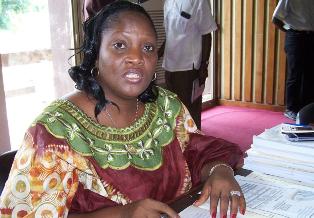Editorial: Granting Visa to the LWSC
WATER, AS A major source of life, has in recent decades been excessively utilized, perhaps evolving from its abundance and inexpensiveness throughout Liberia, as inexperienced in many nations the world over, particularly those in northern Africa including the Sahara region, thus confining its conservation to institutionalized entities that must seek the support of foreign partners for effective management.
HERE IN LIBERIA and prior to gaining its legal status decades ago and known as the Liberia Water and Sewer Corporation (LWSC), the population, particularly on the countryside, had remained overly conscious of the fact to the extent that laws were made on the use of rivers, creeks and streams drawing clear boundaries between areas designated for drinking, laundry activities and defecation, with many preferably considering rain as the safest for drinking.
MEANT TO HAVE ensured the good health of the population, un-chlorinated as they became and leaving its safety strictly at the blessings and mercy of God, capitals of various political sub-divisions of the country, including its capital, Monrovia, have since begun experiencing modernization in the conservation of water resources through the payment of monthly and inexpensive taxations that have tremendously helped in reducing labor constraints in fetching from long distances to various homes.
AS A DIRECT result of the past civil crisis, however, having witnessed significant changes in the modern trend introduced, dating as far back as the Tubman era, it is apparent that as a result of the past civil crisis in the nation that caused massive destruction to basic facilities, thus necessitating the interventions of international and local non-governmental organizations, as well as government, to have since seriously embarked upon the gradual restoration of facilities in meeting the adequate health needs of the population.
USING THE CITY of Monrovia as case study in which the Mount Coffee Hydro in White Plains was seriously damaged during the past civil crisis, in spite initial attempts by the erstwhile Independent National Patriotic Front of Liberia (INPFL) of Brigadier General Prince Y. Johnson to rehabilitate the plant and attracting the technical services of Mr. Hikmat Barbar, coupled with efforts by the Interim Government of National Unity (IGNU) of Dr. Amos Claudius Sawyer to solicit international support that temporarily witnessed the supply of water on Bushrod Island leading up to the Ducor Palace Hotel, the LWSC has since continued to be wrongfully blamed for delay in delivering its services to citizens and residents of Monrovia and its environs.
TRUE THAT THE corporation, in recent decades, has continued to make tremendous strides in re-establishing ties with friendly governments and institutions in restoring services to the swelling population of the City, among which have been the German Technical Cooperation (GTZ) and KFW which are traditional partners, the World Bank, International Monetary Fund (IMF) as well as the United States, communities in Monrovia have however also directly contributed to the delay experienced in water supply by their non-adherent attitudes exhibited towards safeguards that would evidently speed up the performance of the LWSC.
POOR SANITARY CONDITIONS identified as major stumbling block in excelling the work of the LWSC, with drainages constantly clucked out of uncontrollable disposal of garbage and feces, no matter efforts by the ministries of Public Works, Health and Social Welfare (MOH) and the Monrovia City Corporation (MCC) in periodically sensitizing communities and as well helping to keep them away from their filthy state, their warnings continue to remain unheeded by elements forcing themselves to live civilized lives in the City, although uneducated, thus endangering the lives of the majority.
WHILST THOSE IN suburban areas have equally had to rely upon hand-dug wells, with many inappropriately situated around pit latrines and polluted wetlands posing serious health hazards, unless vigorous sensitization campaigns are embarked upon in order to allow the LWSC graduate from its present state, the environment would continue to remain gravely threatened by epidemiological outbreaks that would evidently demand interventions by the MOH and other local and international partners.
[bsa_pro_ad_space id=1]
COMMENDABLE OF EFFORTS made in recent years by the Environmental Protection Agency (EPA) in helping conscientize the citizenry about their surroundings, particularly against those seeking tending to pose health hazards to the lives, the LWSC equally deserves recognition for its resilience at gradually reviving its facilities in various communities, however hoping that he GTZ and KFW would remain in the forefront in rehabilitating lines that it helped installed, since they have the know-how.
LEARNING TO PAY bills to the LWSC in time to help in the health promotion exercise becomes the democratic approach, in view of having considered services of the corporation more political than commercial, thus leaving its management to face constant bottlenecks in its operations over the years.
APPRECIABLE LEVEL OF progress having reportedly been realized in the re-installation of facilities constructed in various political sub-divisions of the country, recording that of Kakata, Gbarnga, Voinjama, Sanniquellie, Zwedru and other cities, Liberians ought however not to wait until Independence Day celebrations to gain access to pipe-borne water provided by the LWSC, but must be considered a basic and daily requirement in the preservation of life.




















